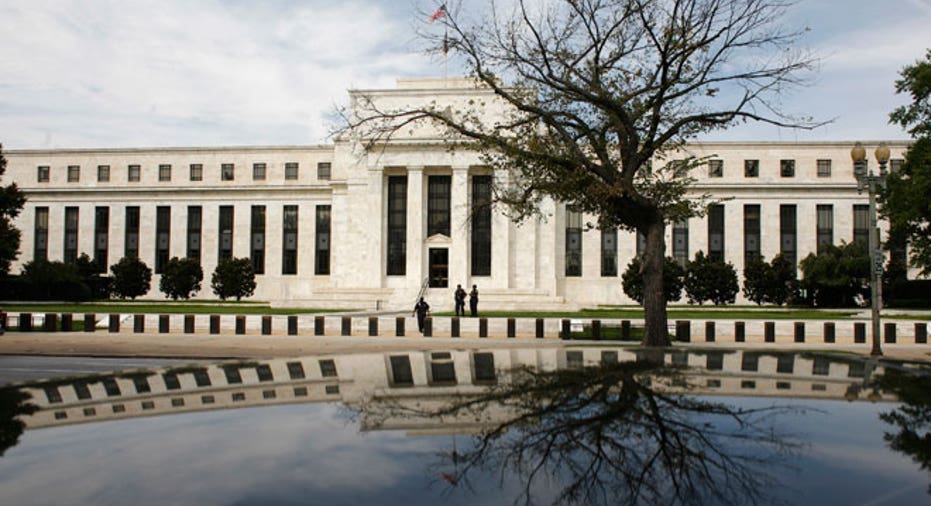Will the Fed Hint at Yet Another Round of QE?

You have to hand it to the Fed. It's a group of great prognosticators.
Early this year, when investors and economists alike believed the economy was pressing down on the accelerator, Federal Reserve Chairman Ben Bernanke and most of his colleagues on the central bank's policymaking group kept any enthusiasm at bay.
Instead, the group refused to alter a pledge to keep interest rates near zero through at least late 2014, a signal that they believed the economy would need the extra boost until then. Only Jeffrey Lacker, president of the Federal Reserve Bank of Richmond in Virginia, worried that prices would jump up if rates remained so low for so long.
Then came May: a stock market swoon, an unmistakable slump in job growth, uneasy consumers and a European debt crisis that won't go away. It turns out the Fed's crystal ball works better than ours.
"There is a huge cloud of uncertainty about what will happen to the U.S. and the global economy over the next six to 12 months," says Bernard Baumohl, chief global economist at The Economic Outlook Group in Princeton, N.J.
As it prepares to meet again this week, the Federal Open Market Committee faces a year that has played out like the previous two, a beginning filled with hopes for an entrenched recovery devolving into days of renewed recession fears.
What can the Fed do?
Twist and Shout
It's a no-brainer that the Fed will maintain rates where they are and most likely stand behind its rate guarantee through 2014. The odds are fair that the policymaking group will introduce the possibility of renewing the almost-expired Operation Twist.
That's the program that swapped out $600 billion short-term securities for longer-term ones on the Fed's balance sheet to maintain low interest rates, without printing more money. The program ends this month.
"(An extension) would at least provide continuity of policy and ease some uncertainty," says Gary Thayer, chief macro strategist for Wells Fargo Advisors.
A continuation of Operation Twist also would help keep mortgage rates near record lows. The Fed has repeatedly noted that the housing market remains a drag on the recovery. Its turnaround would help generate jobs, a much-needed ingredient for a healthy economy.
QE: The Threequel
Twice so far, the Fed has tried a strategy known as quantitative easing, where it creates new money to buy government Treasuries. That pushes down their yields, and subsequently pushes down interest rates tied to those bonds.
Since the second round of quantitative easing ended, there have been whispers of a third installment. Even when the economy appeared to be on better footing earlier this year, the prospect of QE3 remained. The Fed has always maintained that it's ready to provide more support -- read: quantitative easing -- if the economy takes a turn for the worse.
Now, take two months of tepid economic reports, add a dash of European debt crisis, and erase inflation danger (after a key consumer price index last month fell the most in three years). What happens?
"That'll add a little fervor to the QE3 dialogue," says John Stewart, managing director at Vantage Economics. "People might say that inflation is not a problem now, so the Fed can throw out all the stops and add more liquidity."
Don't expect QE3 this week, though. The Fed, not known for its unbridled spontaneity, will monitor the economy to see if the downcast reports persist before considering further action.
"The Fed will give us signs of a little more stimulus, but not much," says Thayer. "They don't want to take pressure off Congress to do something about the deficit later this year."
At the Edge of the Cliff
The government influences the economy in two ways: monetary policy provided by the central bank, and fiscal policy supplied by lawmakers. Bernanke has been urging Congress to avoid jumping off the so-called fiscal cliff (a term coined by the Fed chairman himself).
The cliff involves allowing unemployment benefits and tax cuts to expire this year and automatic government spending cuts to start next year, all in the name of slashing the country's deficit. Many observers expect lawmakers to avoid the cliff at the eleventh hour. Such brinkmanship, Bernanke warned Congress this month, could quash consumer and investor confidence, much like the debt ceiling debacle did last year.
But if politics trumps concerns about the fiscal cliff -- a possibility in an election year -- the fallout would be much worse.
"The fiscal cliff guarantees we will have a recession next year," says Baumohl.
Then, it's time for QE3. Or QE4.



















